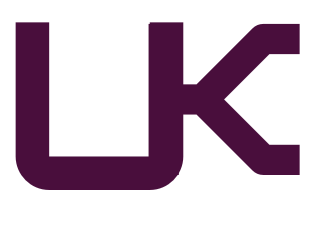Arriving at Heathrow Airport: Our Journey to the UK
On a beautiful summer morning in 2022, our plane gently touched down at London’s Heathrow Airport. Despite our young children’s restlessness during the long flight, the journey was surprisingly smooth. We were delighted to find the airport relatively empty, even though it was only 4:45 AM.
After swiftly passing through border control, we collected our luggage and were met by our driver. With four large bags and a few smaller ones, our relief at finding everything intact was palpable. We’d heard tales of lost luggage at Heathrow, so our joy at the safe arrival of our belongings was immeasurable.
A Warm Welcome to London
Stepping out of the airport, we were greeted by an unexpected heatwave – a stark contrast to London’s reputation for gloomy weather. The sweltering heat felt like a typical summer day in Limpopo. The local houses, clearly designed for cooler climes, trapped the warmth. However, we appreciated the extended summer days, a stark contrast to South Africa’s winter season at that time. (In London, summer usually lasts just a couple of days!) We savored every moment of the warmth before facing our second winter in a single year.
Temporary Accommodation and the Airbnb Experience
In our quest for temporary accommodation while settling in and searching for a permanent rental, we initially considered hotels. However, the high cost, exacerbated by the summer holiday season, led us to choose an Airbnb. This decision marked our first encounter with the UK’s high cost of living, with a one-week stay in a two-bedroom house costing us nearly R30,000. We hoped this brief stay would give us enough time to secure a long-term rental. However, after a full week of searching, we found ourselves nowhere closer to finding a place and had to extend our Airbnb stay for another week.
During the two-week stay at the Airbnb, we explored rental options on RightMove, a popular platform for property listings. Although the app allowed us to set our budget and preferences, the application process was frustrating, with landlords rejecting us without providing reasons. As our Airbnb stay neared its end, and with no rental in sight, we had to extend our stay for an additional week in hopes of a breakthrough.
Finding Our Permanent Home and Settling In
With time ticking, we stumbled upon OpenRent, a platform that allowed landlords to advertise properties without the involvement of estate agents. This approach offered more transparency and cost-effectiveness since it eliminated agent fees. As our Airbnb days dwindled, we finally secured a two-bedroom house in the Woolwich area for £1650, approximately 35,000 in rands at the time. Although the price was notably higher than South African rentals, we recognized it as our new reality. The location allowed for a 30-40 minute commute to the CBD (Zone 1), with our home situated in Zone 4.
We spent time familiarizing ourselves with the area, discovering shopping complexes for essentials, and adapting to various cultural differences. The local accents, different from those on TV, presented a learning curve. Additionally, we encountered shorter days and reduced sunlight during the winter months, with the sun setting as early as 3:54 PM, impacting outdoor activities and moods.
Adjusting to Life in the UK
Our time in the UK has been an exciting journey of adaptation and discovery. While we have found the UK to be a wonderful place to live, we’ve had to navigate through various aspects of daily life that are unique to this new environment. One of the most significant challenges has been adjusting to the financial aspects of living in London, known for its high cost of living. From rental deposits to utility bills, we’ve encountered a financial landscape that has required careful planning and budgeting.
Managing Financial Obligations
One of the first financial obligations we encountered upon settling in the UK was the deposit for our rental property. Much like our experience in South Africa, we had to pay a deposit equivalent to five weeks’ rent, amounting to £1900. This financial commitment was a common practice, aimed at securing the property and ensuring its upkeep during our tenancy. However, it was just the beginning of our financial responsibilities. Council Tax, water bills, TV licenses, and utilities became regular expenses that we had to factor into our budget. In this section, we’ll delve into the details of these financial obligations, shedding light on what newcomers to the UK can expect when it comes to managing their bills and financial commitments.
Our UK Bills While Living in London
Managing household expenses in the UK, especially in a bustling metropolis like London, posed a unique set of challenges for our family. The cost of living in this vibrant city is notably high, and we encountered various financial responsibilities as part of our daily lives. In this section, we’ll provide a detailed breakdown of the bills we managed during our stay in London.
Deposit: Much like our experience in South Africa, we initially had to place a deposit equivalent to five weeks’ rent, totaling £1900. This deposit is a standard practice to secure the rental property and ensure its upkeep throughout our tenancy.
Council Tax: An obligatory monthly Council Tax of £155 was one of the recurring expenses we encountered. This contribution goes towards local services and amenities, which residents benefit from.
Water: Our monthly water bill, necessary for our daily needs, averaged at approximately £55. It is a regular cost that we included in our budget.
TV License: A TV license fee of £26 per month was in place; however, it’s a requirement only for those who watch live television. In our case, we were fortunate not to have to pay for a TV license since we exclusively used our television for streaming services like Netflix and gaming.
Electricity and Gas: The expenses for our utilities, particularly electricity and gas, tended to increase during the winter months. This was primarily due to the greater demand for heating to combat the colder weather.
Internet: For our internet service, we opted for a 500mbps package through Community Fibre. This choice offered a 12-month contract, which was slightly shorter than the standard 18-month contracts provided by most Internet Service Providers (ISPs). The monthly cost for this package was £32. This high-speed internet connection proved essential for both work and leisure activities.
These financial obligations were an integral part of our daily life in the UK. Understanding and managing them required careful planning and budgeting to ensure a comfortable and enjoyable stay in London.
Here are some tips for anyone relocating to the UK from South Africa:
Budget for High Costs: Prepare for the high cost of living in one of the world’s most expensive cities, London.
Don’t Hesitate to Ask for Help: The people in the UK are generally friendly and helpful, so don’t be afraid to seek assistance or guidance when needed.
Embrace Patience: Adjusting to a new country and culture takes time, so be patient with yourself and the process.
In closing, our journey to the UK has been a remarkable adventure, filled with both challenges and joys. We’ve adapted to the high cost of living in London, navigated through unique financial responsibilities, and embraced the welcoming spirit of the UK.
Thank you for joining us on our journey, and we wish you all the best in your own adventures, wherever they may lead.

